Life
Sign up for our newsletter
We summarize the week's scientific breakthroughs every Thursday.
-
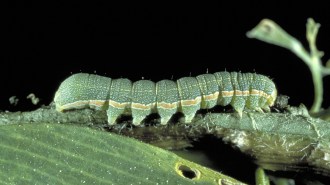 Animals
AnimalsViruses can kill wasp larvae that grow inside infected caterpillars
Proteins found in viruses and some moths can protect caterpillars from parasitoid wasps seeking a living nursery for their eggs.
-
 Animals
AnimalsPolar bears sometimes bludgeon walruses to death with stones or ice
Inuit reports of polar bears using tools to kill walruses were historically dismissed as stories, but new research suggests the behavior does occur.
-
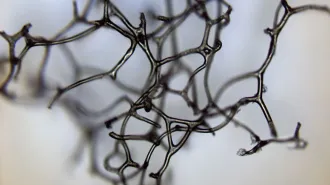 Life
LifeIf confirmed, tubes in 890-million-year-old rock may be the oldest animal fossils
Newly described wormlike fossils may be ancient sea sponges. If confirmed, the fossils would reveal a remarkably early start to animal life.
By Jake Buehler -
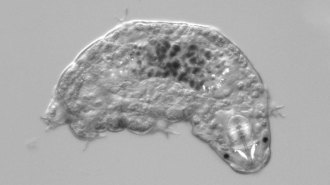 Life
LifeNear-invincible tardigrades may see only in black and white
A genetic analysis suggests that water bears don’t have light-sensing proteins to detect ultraviolet light or color.
-
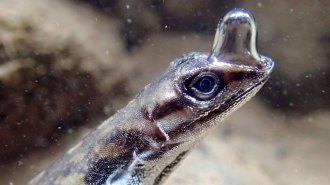 Animals
AnimalsHow some lizards breathe underwater
Researchers have figured out how some anole lizards can stay underwater for as long as 18 minutes.
-
 Life
Life‘Wild Souls’ explores what we owe animals in a human-dominated world
The new book Wild Souls explores the ethical dilemmas of saving Earth’s endangered animals.
-
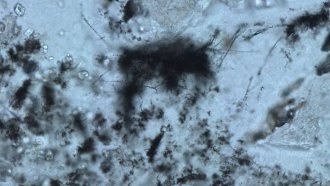 Paleontology
Paleontology3.42-billion-year-old fossil threads may be the oldest known archaea microbes
The structure and chemistry of these ancient cell-like fossils may hint where Earth’s early inhabitants evolved and how they got their energy.
-
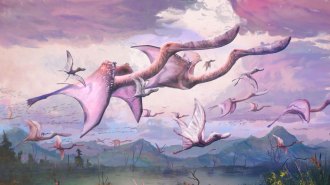 Paleontology
PaleontologyPterosaurs may have been able to fly as soon as they hatched
A fossil analysis shows the flying reptile hatchlings had a stronger bone crucial for lift-off that adults and shorter, broader wings for agility.
-
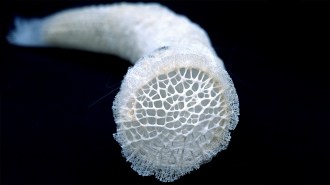 Animals
AnimalsHow intricate Venus’s-flower-baskets manipulate the flow of seawater
Simulations show that a deep-sea glass sponge’s intricate skeleton creates particle-trapping vortices and reduces the stress of rushing water.
By Nikk Ogasa -
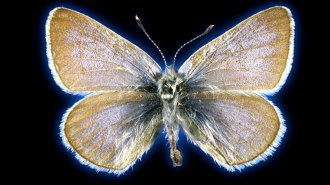 Animals
AnimalsThis butterfly is the first U.S. insect known to go extinct because of people
A 93-year-old Xerces blue specimen’s DNA shows that the butterfly is a distinct species, making it the first U.S. insect humans drove to extinction.
By Jake Buehler -
 Microbes
MicrobesMissing Antarctic microbes raise thorny questions about the search for aliens
Scientists couldn’t find microbial life in soils from Antarctica, hinting at a limit for habitability on Earth and other worlds.
By Elise Cutts -
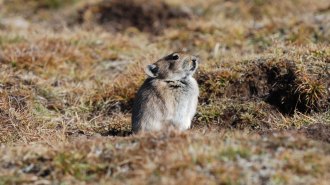 Life
LifePikas survive winter using a slower metabolism and, at times, yak poop
Pikas endure bone-chilling temperatures on the Qinghai-Tibetan Plateau by reducing their metabolism, and when possible, eating yak poop.